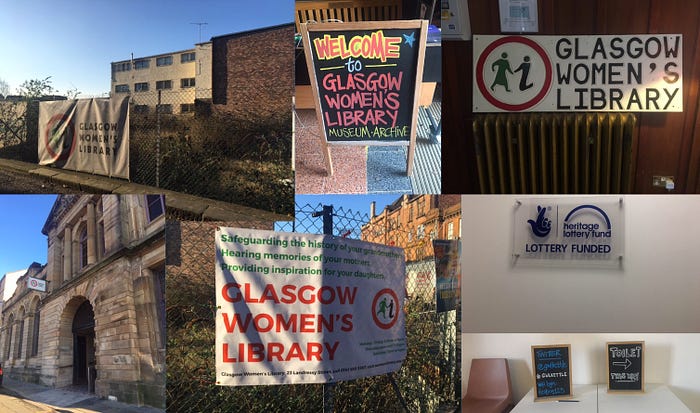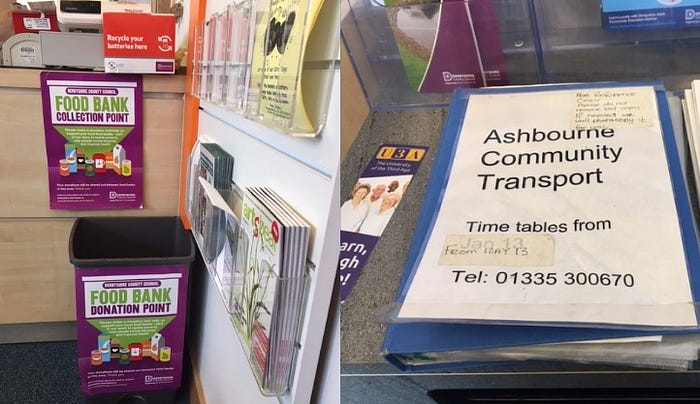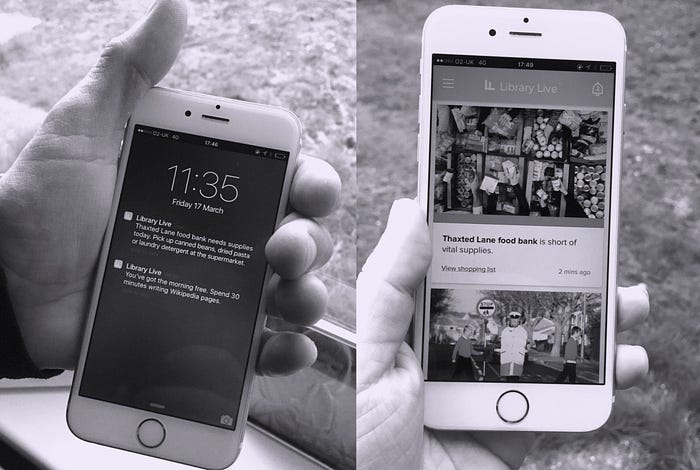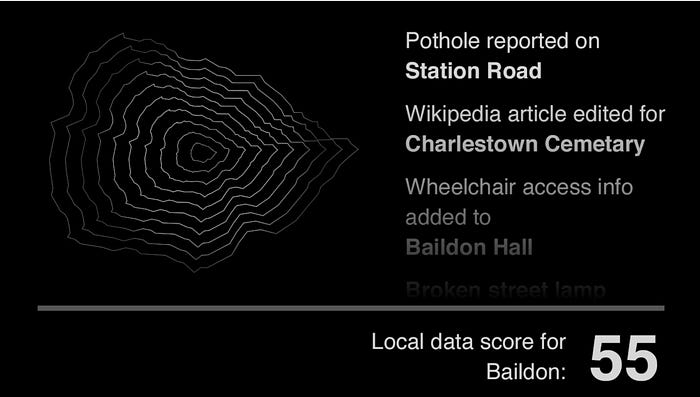How we can help libraries — and how libraries can help us
Fake news, filter bubbles, polarised content and algorithmic timelines: we live in a world where the internet offers everyone access to information, but no guarantee that the information is accurate or even true.
But the internet hasn’t always been our primary source of learning. Before computers, if you wanted to learn something you went to the library. And while there wasn’t the same quantity of information — books take up space — having to curate what’s on offer meant the quality was much higher.
The internet has had a massive impact on our libraries. In the past decade, overall library usage has gone down by 30%. As a result, hundreds of libraries across Britain have closed and a quarter of all library staff have lost their jobs. And at the same time, we have access to more information than ever — but no good way to tell the good from the bad.
Doteveryone believes we need neutral, non-commercial, community spaces for discovery, learning and existing in the digital age. We also believe libraries are a vital public institution, and provide vital social infrastructure, worth saving. (Libraries are public institutions that stand for a set of values. They are one of the few places left where you are a resident — or a person — before you are a consumer. We didn’t want to get nostalgic about libraries but when things are closed down and taken away, it is a lot harder to bring them back.)
So we’ve been exploring if libraries could be part of building a better, fairer internet for us all.
We started with some user research and a four-week discovery project (lead by Richard Pope) for the Libraries Taskforce to help them identify and communicate their future priorities. (Our presentation from that work is here; the Taskforce is currently taking it forward.)
After that work, as well as some discussions which you can read about here, we decided to explore two facets of the libraries discussion: what libraries represent, and how libraries could help us navigate our digital society.
Libraries as actively neutral spaces
We started with the question, what is an ‘actively neutral space’? Is it important? Are libraries the only space that does/can offer this? What makes a library a library — in essence, what is “librariness” — and what are the visible ways that a space tells you it is actively neutral?
Research began with visiting libraries in Brixton, East Sheen, Crofton Park, Ashbourne, and Glasgow. (You can read our blog post about the visits here.) We tracked our work in a spreadsheet as a way to discover what the sites — big and small, urban and rural, England and Scotland — had in common.

During this time we also did interviews with some library experts to explore some of our hunches. They talked about the concept of being actively neutral:
“How can they be active neutrality in the digital world?”
“They are neutral because they are worried, not because of some ideology.”
“Many libraries have failed at this, I think. Partly because they’ve been associated with doing other things (offering other council services) which are inherently not neutral.”
They criticised the status quo of how libraries operate:
“Books are less and less important. My library doesn’t offer me what I want, and it’s not relevant to me.”
“ Libraries are 19th century institutions in the 21st century. What’s the point in keeping them alive? Why do they need to be universal? What is their contemporary worth?”
“Libraries will die in the hand of communities.”
They told us what they thought might make the biggest difference for libraries:
“We need to get the basics right, so that they remain relevant.”
“We need to have a clear message about what a library actually is. We need to stop faffing around with makerspaces and do what we’re good at.”
“We have got to start with the people, I don’t want to undermine the value of professional librarians, but we almost need to raze the profession to the ground. The current courses don’t address anything to do with people, social change, the public sphere, why we need them.”
Through our research we also came up with (or were inspired by) other ways that library spaces could be used: a space for digital skills and understanding, journalists-in-residence, telehealth, Maker Nurse, repair clinics, publishing live community data, safe-guarding local data, and community convening.
How libraries can help the internet
We also wanted to focus in on the other side of our big question: how libraries can touch the internet too. How can libraries and librarians help make the internet better for all of us?
Here are some of the hunches we had about how libraries could help make the internet better — along with some basic prototypes to help illustrate those ideas. We realise these are simple ideas, but they’re also not happening (or not happening consistently). And often, when libraries are doing these things, they aren’t using them as a selling point.
Making the internet more useful
Libraries can provide safe, secure access by default. In its simplest form, this could mean computers that don’t track your personal details. However, our Technical Director Laura James mapped out lots of different ways libraries could offer open and secure tech.
Librarians can help build digital understanding. Many libraries already offer basic digital skills classes, but as part of an expanded future role librarians could help people understand their digital rights and become skilled in how to protect their digital footprints. The Library Freedom Project has done a brilliant job in this space.
Libraries can give us the tools we need to access the internet. This goes back to basics — hardware, internet connections — and is arguably where libraries are furthest ahead on their tech journeys. Offering free wifi and phone chargers are simple ways libraries can do more to help people get online.
Making the internet more accountable
Libraries can curate and publish information that equalises power. With no corporate funders to please, they can be considered in the types of information they protect and distribute through their newsletters, noticeboards, websites, etc.

Libraries can look after our information. Librarians have a history of taking information security seriously. As we move into an increasingly digitised world, it seems logical that libraries could become the places where we hold our archives — the past versions of what politicians have promised or the media has reported, even if that information is inconvenient for some.
Libraries can help separate fact from fiction. Librarians care about facts, and in a culture of fake news, the ability to separate what’s real from what’s not is an invaluable skill. Resources, reference points, and even real-life training could help us make better sense of the world we live in.
Making the internet more inclusive
Libraries can create virtual hubs for the community. Building on the work we did last summer, we experimented with “Library Live” (see visuals below). Tools like these can help libraries to be at the centre of distributing community information.


Libraries can help build basic digital skills. None of the above is useful unless you have the skills to get online in the first place. Although it’s no longer our mission, Doteveryone and Go ON UK spent five years working with local councils to get people online — much of that work happens directly in libraries.
What’s next?
Whilst we’ve explored lots of ideas, our main takeaway in terms of what we think would make the most difference to libraries is simple: libraries need to talk more about themselves*. They need to talk about their perfect position as a public or community institution to provide services and space that reflect the changing needs of the public. And as vital social infrastructure that connects people to one another. When libraries do talk about themselves, they should emphasise the activity they are doing or could do that reflects the public mood, how people are feeling, thinking and talking about the internet. And when they start talking more about those things, the things that libraries stand for, they can also newly design or more clearly state the ways they’re doing that.
Our research into libraries marks the beginning of our Digital Society strand of work, where we focus on how the internet is changing society. This work involves identifying emerging areas of caution or seeing where what we care about in society might need protecting, re-purposing or re-inventing — moral needs, not just user needs. Public institutions, including libraries, are a part of our lives that we think stand for something important. In this strand of work we will also be looking at areas like law & justice, the way we value care, and how to design for Brexit.
If you want to chat more about any of the work we’ve done here or elsewhere, we’d love to hear from you. Send us a note at [email protected] and we’ll get back to you as soon as we can.
*Please use these posters!
Thank you to Alice Corble, Anne Marie Naylor, Ian Anstice, Richard Pope and Claire Creaser for their contributions to our thinking.
Want to learn more about libraries? Listen to the first episode of Network, a new podcast from Doteveryone.
In this episode, our director of policy Catherine Miller investigates whether libraries are in a state of emergency or re-emergence with Kathy Settle, the head of the Libraries Taskforce; talks to Bryan Boyer from NYC’s strategic design studio Dash Marshal about their project ‘Librariness’; and chats with Alison Wheeler, Leon Paternoster and Sarah Lungley of Suffolk Libraries.